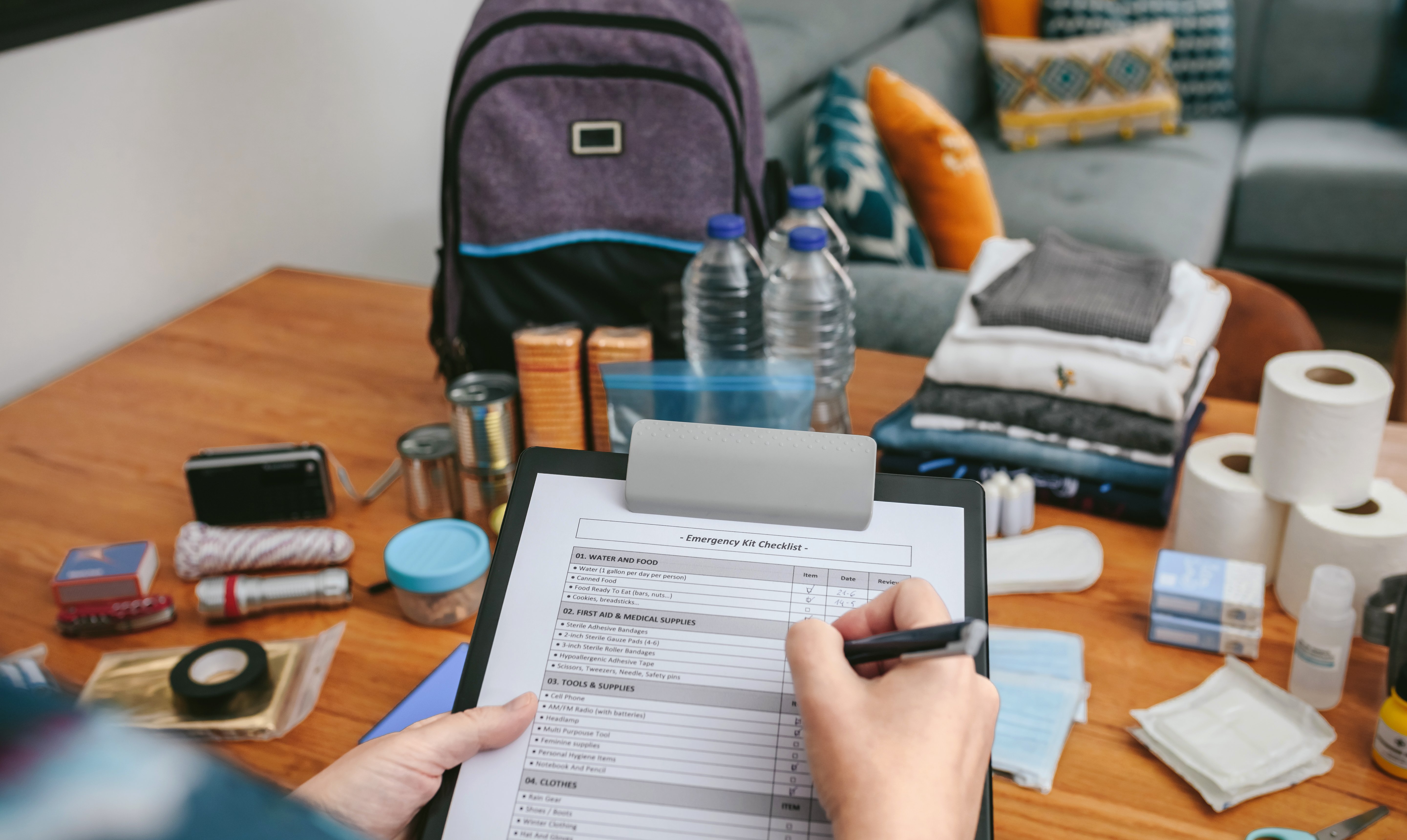
When creating an emergency survival kit for the home, consider the supplies you might need to last you and your family for a minimum of three to seven days. In case of emergencies that may require that you leave your home quickly, such as a wildfire, prepare your kit well in advance, and keep it in an easily accessible location so you can take essential items with you if you must evacuate with little notice.
For other emergencies that might require staying in place at home for several days, such as a blizzard, you might want to gather supplies when a storm is first forecast and closely monitor the storm, to ensure that you have everything you need on hand.
Whether you are hunkering down to weather a storm at home, scrambling to evacuate to get to safety, or facing the possibility of being stranded in your vehicle during stormy weather, one thing is sure: having the proper provisions can help make a difficult scenario safer for you.
The following are some of the key considerations for a survival kit to fit these potential emergency situations. Consider how each of them could suit these scenarios and arm yourself appropriately.
- One gallon of water, per person, per day.
- Non-perishable and canned foods, along with a non-electric can opener.
- Sanitation and personal hygiene items.
- Flashlights with extra batteries.
- Battery-powered or hand-crank radio, with extra batteries if relevant.
- Extra clothing and blankets.
- A first-aid kit.
- Emergency cash and checks as credit cards may not be dependable in a power outage.
- Chargers for electronics, including vehicle chargers.
- A whistle to signal for help.
- Duct tape.
- Copies of personal documents, including a home inventory list, insurance policies and other important legal and financial documents.
- Bug spray (depending on location and climate).
- Hand and foot warmers (pending climate).
- Pen and notebook to keep notes such as important phone numbers, in case the power is out and electronic devices are not working.
- Baby supplies such as diapers, wipes, infant formula, food and bottles.
- Pet food and extra water for your pets.
- At least a three- to seven-day supply of any daily medication for family members and pets.
Make sure your belongings are covered for anything mother nature throws your way. Contact OTC today.
With thanks to Travelers Insurance for their editorial contribution.


 ;
;
 ;
;
 ;
;
 ;
;
 ;
;
 ;
;
 ;
;


